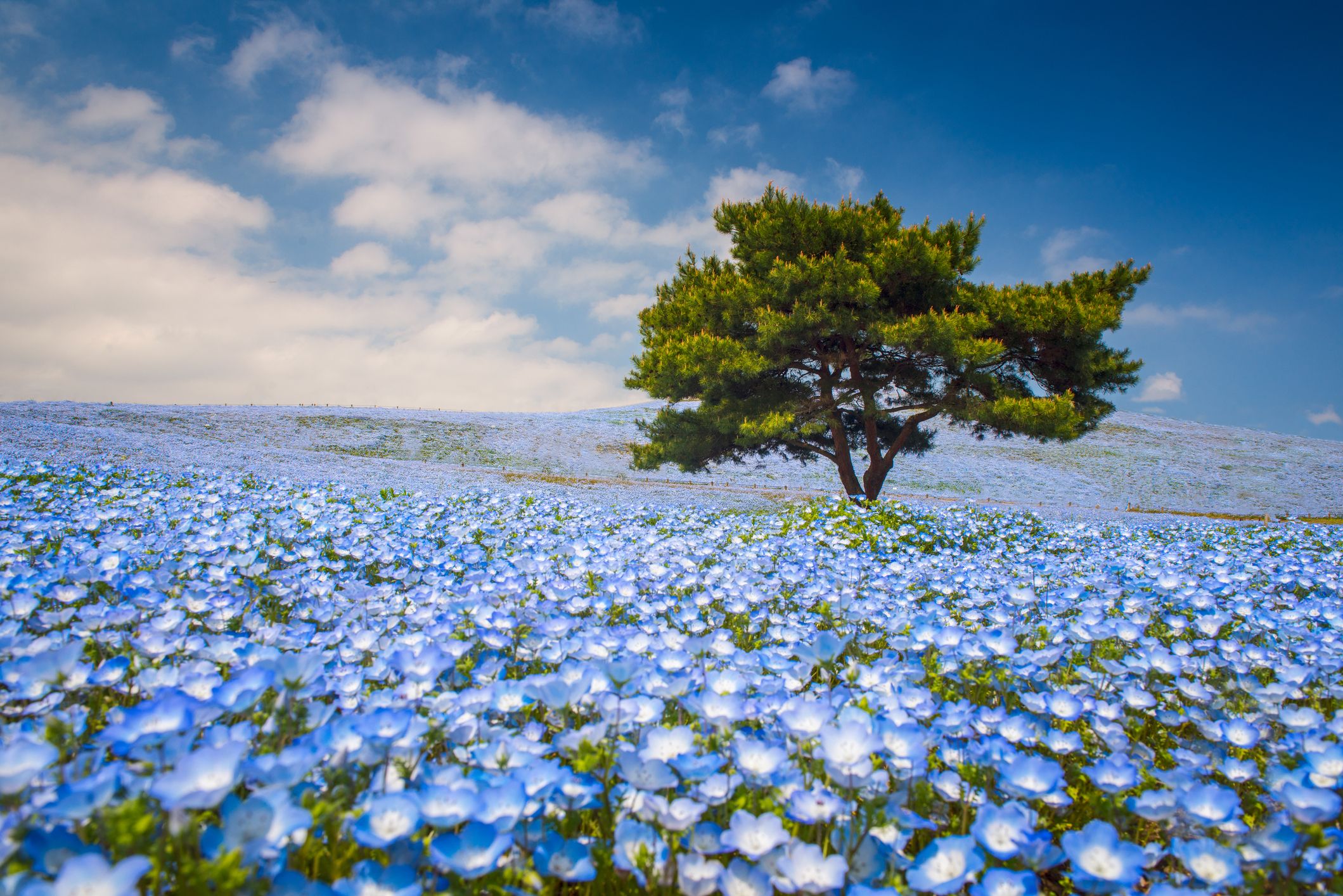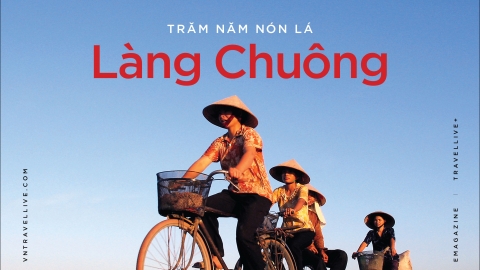At this time of year, an estimated more than 5 million blue-eyed oleander trees are in full bloom, creating giant blue blankets that cover the gently sloping hills of Hitachi Seaside Park, located on the coast of Hitachi City in Ibaraki Prefecture, one of Japan's most popular summer destinations.
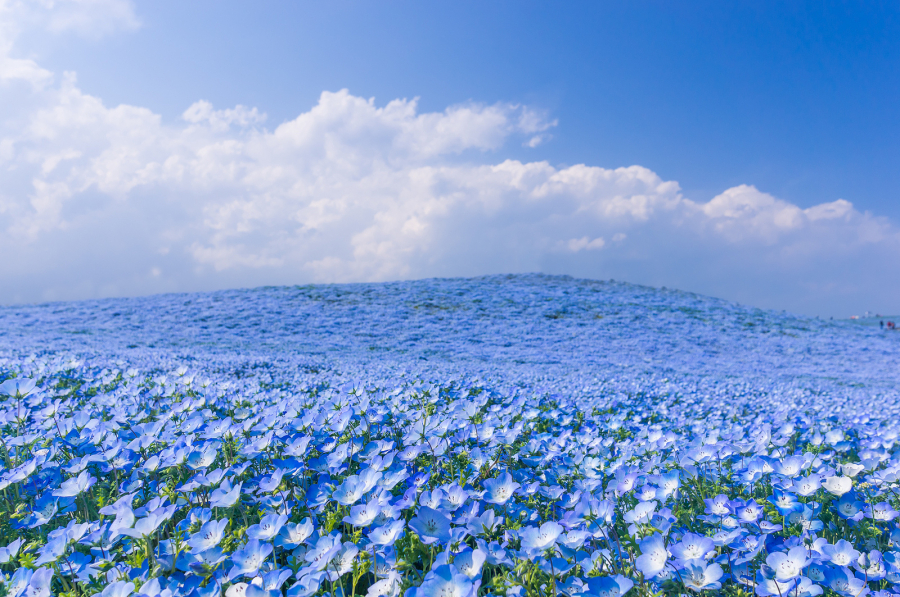
With a total area of 350 hectares, of which about 200 hectares are open to visitors, Hitachi Park is known as a flower paradise with many different flower species blooming throughout the four seasons. Among them, the most notable are blue-eyed flowers, tulips, sunflowers, cosmos, daffodils, and kochia bushes that turn red in autumn.
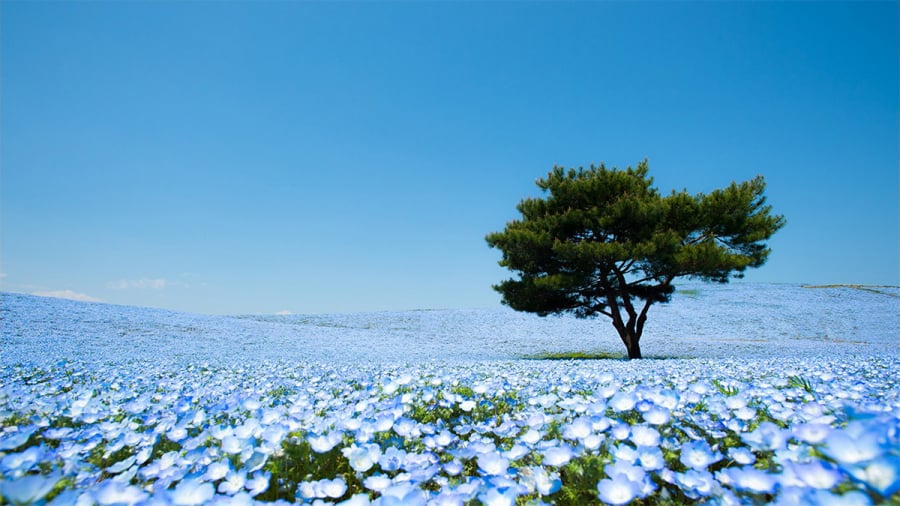
The annual Blue-Eyed Cherry Blossom Viewing Festival at the park attracts a large number of visitors from both within and outside Japan. Visitors can stroll along the small paths around the Miharashi No Oka hillside to admire the blooming blue-eyed cherry blossoms. From Tokyo, it takes about an hour to travel from Tokyo Station to Katsuta, the nearest station to Hitachi Park. Then, a 20-minute bus ride will take you to the park entrance.
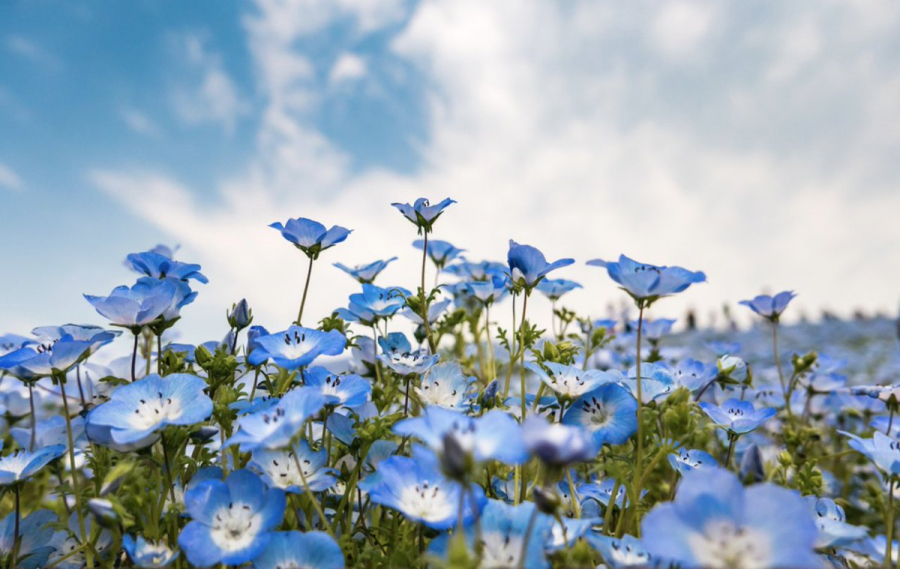
But this year, the place is deserted. No tourists have come here to visit and take pictures like in previous years, due to social distancing regulations during the Covid-19 pandemic.
The entire Hitachi Park was ordered closed from the beginning of April to prevent the spread of the Covid-19 pandemic in Japan. Instead of the usual crowds of people admiring the flowers in the park, this year, the hill of blue-eyed flowers bloomed peacefully, showcasing a romantic and tranquil beauty.
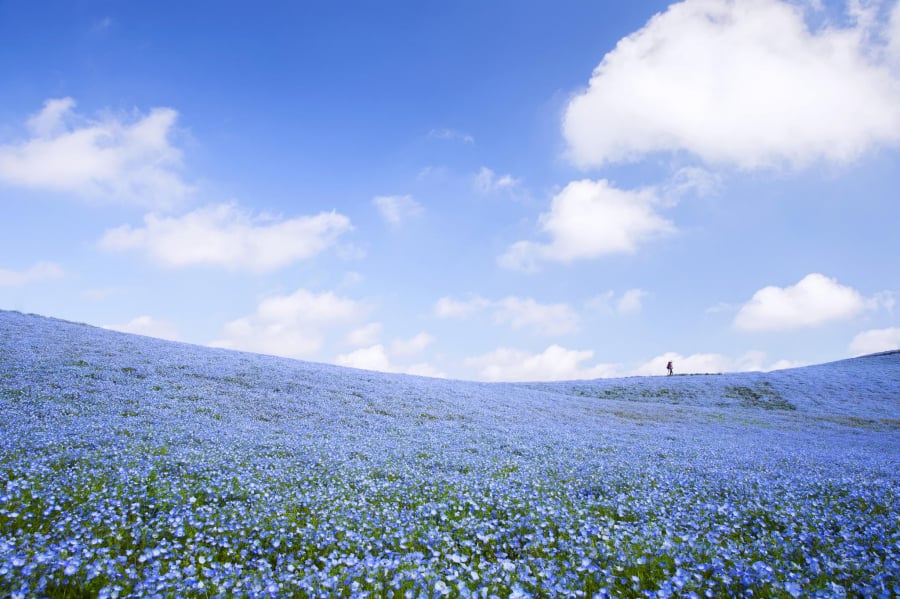
Those who love the blue-eyed flower this year can only admire it through the park's website. Staff here have been assigned to film each area of the flower garden, giving visitors the most familiar views possible, to help alleviate their disappointment at having to stay home during this time.
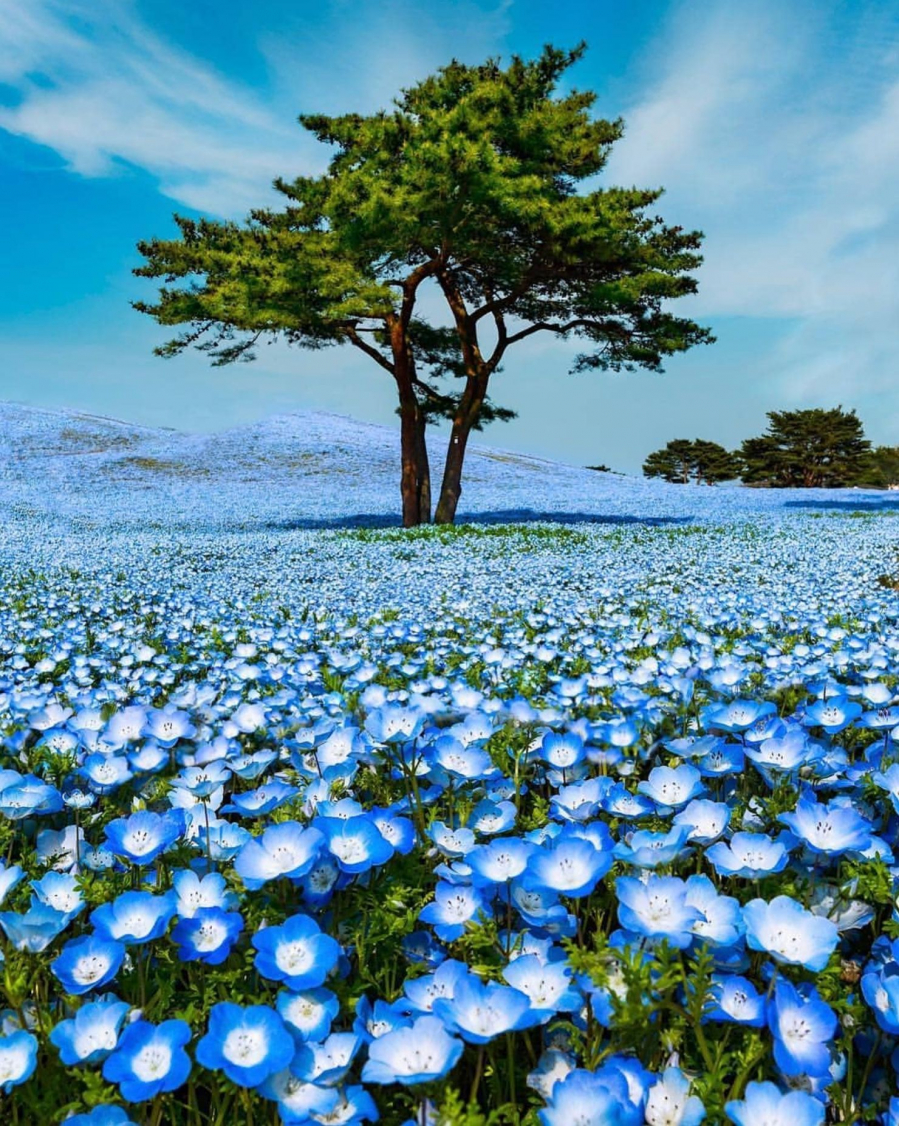
Yasunori Tamura, a representative of Hitachi Park, said: "We filmed 360-degree footage of the blue-eyed flower garden and the rapeseed flower garden – which are in full bloom – to share with viewers during this period of restricted movement. We hope that COVID-19 patients will recover soon, and the world will overcome this difficult time. We also hope that visitors from all over the world will be able to come here again to admire the flowers and enjoy life."

 VI
VI EN
EN



